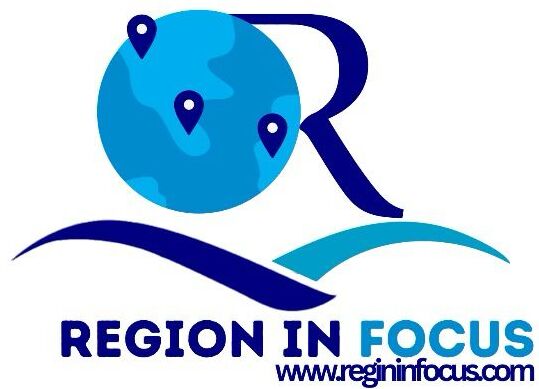The right to press is usually quoted as the foundation of democracy, one of the guaranties of accountability, transparency, and open discussion. However, authoritarian governments are still oppressing this fundamental building block of society in the world. These governments use different methods to control information, silence the opposition, and influence masses of opinion to follow them instead of openly censoring the media. The conflict of press freedom against the authoritarian rule is not a fight by journalists only but the fight against the truth in general, a fight which defines the health of the societal life and the future of the civil freedom.
Press and Pressure: The Roles of the Press.
A free press is also a check and a balance as well as a channel of communication between the state and population. It reveals corruption, gives voice to the marginalized, and encourages an informed discussion of issues of national significance. Journalists in democracy are used as agents between authority and the populace and hence make the authority accountable to the citizens. But in the context of authoritarianism, this very role is a threat to the bases of control, which such regimes are founded on. Authoritarian leaders desire to have a monopoly on narratives, and that critical thinking is equal to disloyalty and that an open debate should be substituted with a controlled message.
The press thus becomes a battlefield, a place where the verity is disputed and facts are a gun. When governments are afraid of being questioned, they usually use national security, cultural stability, or social harmony as an excuse to censor. These rationalizations conceal the real aim which is to retain power by restricting the access of the citizens to free and critical views.
Control and Censorship mechanisms.
Authoritarian governments have a vast number of instruments they use to fight press freedom. These ways are different, ranging between blatant repression to more advanced and hidden forms of control. The customary censorship the prohibition of publications, the banning of websites, and imprisoning journalists is still widespread in most states. Governments often use defamation, anti-terrorism, or fake news legislation to criminalize their opposition. By condemning independent reporting as a challenge to uniting the country, they cause a climate of fear and self-censorship.
The 21 st century has also witnessed the rise in digital surveillance as an effective control mechanism. The communication of journalists is controlled, the online space is influenced with the help of state-funded propaganda, and algorithms are used to promote pro-governmental news and decrease dissent. Misinformation and the attack on independent voices are propagated through social media influencers that are affiliated with the regime in some countries. The distinction between state propaganda and the discourse of the people are blurred and citizens are left unsure who to believe.
Another useful tool of control is economic pressure. Totalitarian regimes can cut off the state advertising to the critical sources of media or block their distribution channels, forcing them towards financial ruin. Conversely, the reward of the loyal media organizations is finances and access to information that is not shared with other media. This media ecosystem is under control so that the majority of citizens can be exposed only to the narratives that support the legitimacy of the regime.
The Corrosion of the Truth and the Credibility.
When the press is systematically suppressed under the authoritarian rule, the truth is eroded. The lack of independent journalism is filled with propaganda that shapes an alternative reality and justifies state power. The only truth that is received is the regime version of events and all critical voices are perceived as foreign elements or traitors. This monopoly of information gradually transforms the collective memory and undermines the confidence of people in independent sources of information.
This loss of truth is far reaching. The people lose their powers to make informed decisions and reduce political accountability and promote corruption. Furthermore, the lack of the authentic journalism breaks the social composition of trust: people do not know what to trust anymore, and skepticism becomes apathy. The end product is a society where silence is its survival and truth is dangerous.
Strength and Survival of Journalists.
Nevertheless, despite these odds, the news reporters worldwide still exercise immeasurable levels of bravery in their quest to unravel the wrong and uphold freedom of speech. They take the underground or digital activism, and they invent methods of going around censorship and reaching the audiences. In other instances, the exiled journalists run the online stations based in other countries, where encryption and secure communication networks are used to save their sources. The Panama Papers investigation is one of the cross-border collaborations that have demonstrated how collective action can go across borders and reduce state repression.
This is because in those nations where outright criticism is not permitted, journalists usually adopt indirect ways of opposition through satire, allegory and coded language to express dissenting opinion. Despite the fact that social media is strongly censored, there are still few areas where independent reporting and citizen journalism take place. Although the digital era has brought new challenges, it has also widened the prospects of the proliferation of the alternative media to flourish without the state dominance. This strength highlights the human need to find the truth and responsibility even in the most oppressive circumstances.
The Global Solidarity and the International Community.
The global action against press suppression by dictatorial governments has not been fair. As the organization like Reporters without Borders, Committee to Protect Journalists (CPJ) and UNESCO keep on championing media freedom, geopolitical concerns tend to suppress the power of the global pressure. Strong dictatorial regimes that enjoy economic capital can divert blame or apply diplomatic pressure to undermine international criticism. Additionally, the loss of democratic norms in the world has empowered the leaders and view press regulation as a valid tool of governance.
However, digital solidarity and transnational advocacy have given it new ways of support. Cross-border alliances of journalists, human rights activists, and universities now cooperate in order to report the violence and offer safety to a threatened reporter. Bringing censorship in the state to the world level makes it more expensive to continue repressions and morally justifies the fight of free speech. The difficulty is how to make sure that international backing has been converted into tangible safeguards to individuals who have put their life in danger to speak the truth.
Technology The Two parts of a coin.
The media market has been revolutionized by the digital revolution and has provided opportunities as well as new threats to the freedom of the press. On the one hand, technology enables information to pass through borders fast and enables citizen journalists and enables their voices to be heard. Conversely, it has presented new instruments of repression to authoritarian regimes. Advanced surveillance can help the nations to monitor the movements of journalists, intercept their communications, and control the conversation on the web. AI is employed more to detect those who are against the pack and hit them with specificity.
The fight against press freedom has thus shifted to the digital platform. Defending the journalists now is about cybersecurity, encryptions and digital literacy. The international organizations have started to see the necessity to adopt a holistic strategy that would target both physical and digital threats. The future of press freedom will be reliant on the capacity to embrace technology to achieve transparency and the capacity to counter the oppression faculty of such technology.
The Human Cost of Censorship
The censorship behind each of these acts has a human face behind it, the journalists who are jailed, sent into exile or permanently silenced. It is reported that the cases of journalists arrested or killed in the recent years have been the highest in the world according to global press freedom indices. These are not the unique cases but a part of the larger scheme to deconstruct the institutions of truth telling. The emotional and psychological impact on the journalists and their families cannot be overestimated, however, their persistence is a confirmation of the strength of conscience.
Their narratives are a reminder to the rest of the world that freedom of the press is not an ideal thing, but a struggle. Every article released, every interview carried out, and every photograph issued on conflict zones are rebellions against dictatorial power. The bravery of these people makes the darkest spheres of repression be illuminated and to remember the truth which is worth defending.
Concerning the conclusion, it is important to note that the main idea of the play is quite pessimistic because it portrays unresolved problems that lead to a feeling of distrust among modern people.
The conclusion: The Unfinished Battle of Truth.
The freedom of press during the authoritarian regimes has remained one of the hottest human rights issues of our time. The continued resistance by journalists to regimes is a result of their continued adaptation and innovation to survive and resist the ever-evolving ways of control of regimes. Press freedom will not be only the survival of a courageous person but also the overall determination of societies to protect the right to know.
Finally, press freedom is something that cannot exist outside the struggle of human dignity and the democracy itself. Totalitarian polices can definitely gag debate in the short-run, but it cannot put out the human desire to know the truth. The pen, though bound, is still an effective weapon, the one that still can provoke a reaction, create a wish to fight back, and demonstrate the world that the truth is still there, though it is kept inside the cage.


